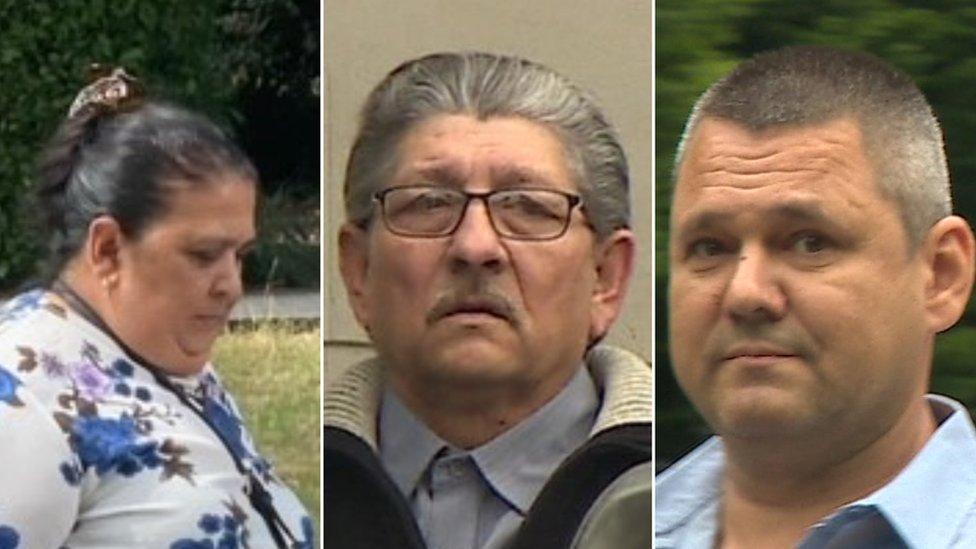Modern slavery: How fake friends forced Latvian Rolands Kazoks to work
- Published
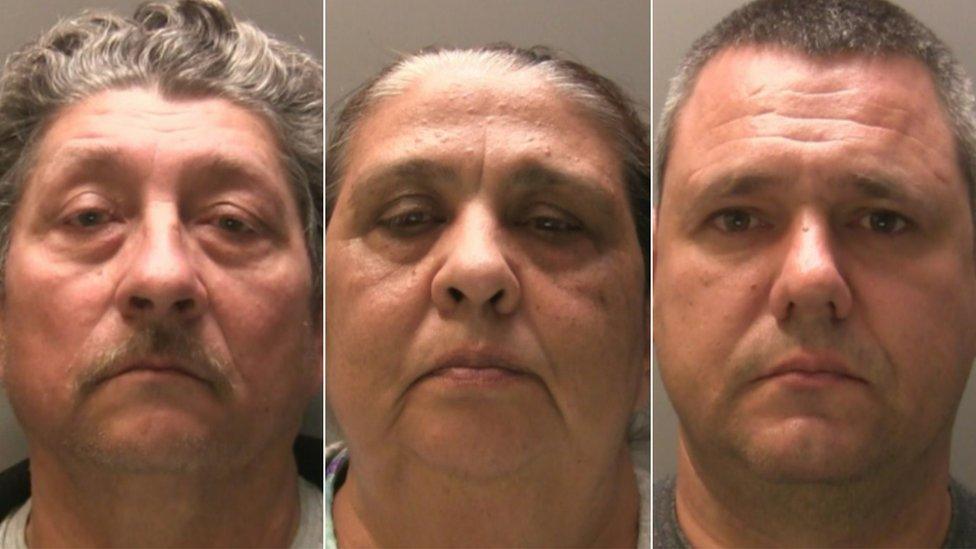
Jokubas Stankevicius (left), Ruta Stankeviciene (middle), and Normunds Freibergs (right) denied modern slavery charges
Vulnerable and trusting, Rolands Kazoks moved to Wales from Germany with dreams of a new life.
Instead, the Latvian was thrust into an 11-month nightmare of hunger, filth and loneliness.
Stuck in a terraced house in Newport, he was left penniless by so-called friends who plundered his wages.
It was only when colleagues spotted him in the snow wearing sliders - which are like flip-flops - that he was able to escape his life as a modern slave.
When Gangmasters and Labour Abuse Authority (GLAA) investigator Laura Thomas met the 31-year-old, she knew something was wrong.
It took two months of work before he was able to leave his hellish life.
At Newport Crown Court Normunds Freibergs, 41, of Morley Close, Newport, has been found guilty of arranging or facilitating the travel of another person with a view to exploitation contrary to the Modern Slavery Act 2015.
Freibergs was acquitted of acting as an unlicensed gangmaster.
Freibergs, Jakubas Stankevicius, 59, and Ruta Stankeviciene, 57, both of Capel Close, Newport, were all convicted of requiring a person to perform forced or compulsory labour.
All three will be sentenced later.
In an interview with the GLAA, Rolands said: "I had a big debt and I did not know what to do."
'My debt kept growing'
He told them the £1,000 he owed doubled when another £1,000 was added in interest.
"I kept waking each day and I was promised that there would be a job, but my debt kept growing and growing," Rolands said.
He believed his persecutors were on his side.
Former police officer Ms Thomas recalled: "[Roland Kazoks] was very much 'I'm OK, everything's OK, these people are helping me, they are my friends'."


Four years on, Ms Thomas said Rolands still finds it hard to accept the truth.
"I don't think he has yet processed entirely what has happened," she said.
In early 2018, Rolands started work at the Avara meat plant in Abergavenny, Monmouthshire.
When his colleagues saw the flimsy footwear he was wearing in the snow, they clubbed together to buy him trainers.
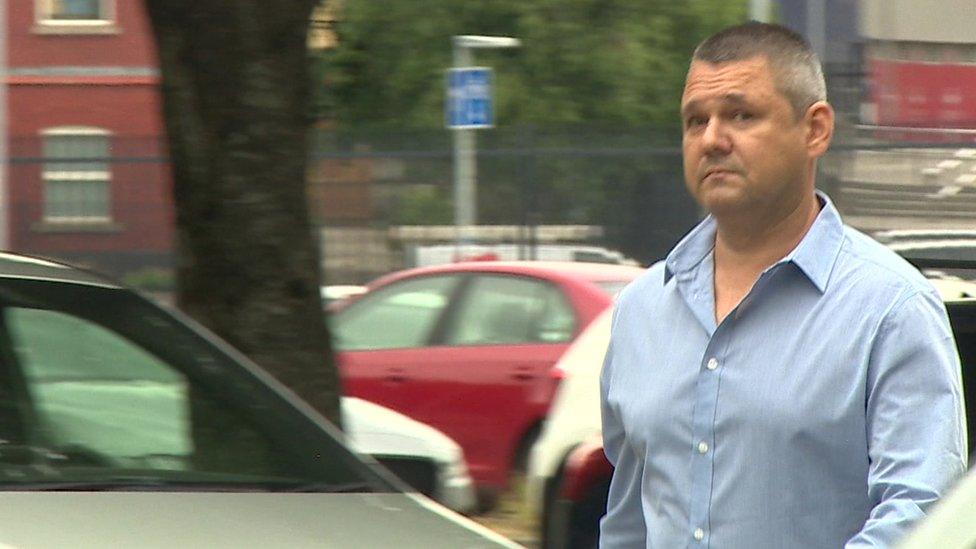
Freibergs denied arranging the travel of a person with a view to exploitation
Dirty and unkempt, Rolands watched hungrily as colleagues ate hot food in the canteen.
He told them about debts he owed and how much he paid to stay at a house on Capel Close in Pillgwenlly, Newport.
Raised the alarm
They told him to move closer to work, saying it would be cheaper. He said he couldn't.
Twigging something wasn't right, his colleagues raised the alarm.
Rolands' route to the three people who took over his life began in October 2017.
Unhappy with his job in a German meat factory, he wanted to work in a bakery in the UK.
Browsing on social media site Draugiem, which helps Latvians looking for work in Europe, Rolands was introduced to compatriot Normunds Freibergs.
His profile photograph showed him at a desk in the office of Newport employment firm Thomas Recruitment.
But Freibergs didn't work there. He was employed at a factory and had previously found work using Thomas Recruitment.
Freibergs lived in Newport with his wife and young son, and he was the first to exploit Rolands.
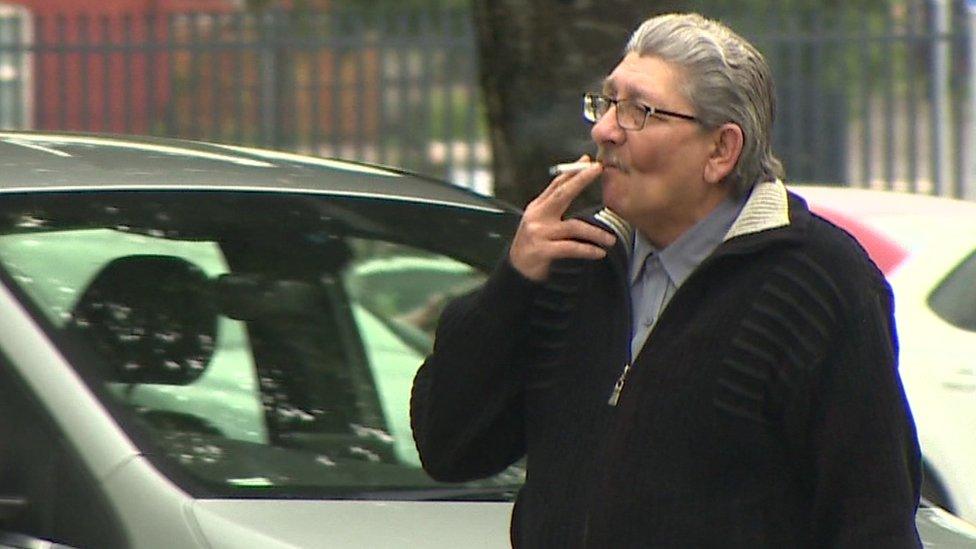
Jokubas Stankevicius was one of three accused of forcing Rolands Kazoks to work
After a flurry of calls and messages, Rolands arrived in Newport in November 2017.
From Germany, he transferred £703.27 to Freibergs' account for a job in the city and his deposit for accommodation.
Tiny box room
Rolands was told he would stay with a Lithuanian couple, Jokubas Stankevicius and his wife Ruta Stankeviciene.
Their home was near shops and restaurants on busy Commercial Road. Rolands was given a tiny box room with a bed, table and little else.
Ruta Stankeviciene told the court she didn't want Rolands in her house, but her husband persuaded her. She said: "I calmed down and said he would stay for two or three weeks."
But Lowri Wynn Morgan, prosecuting, told her: "He calmed you down when he said it would be profitable."
Ruta claimed to have multiple health problems.
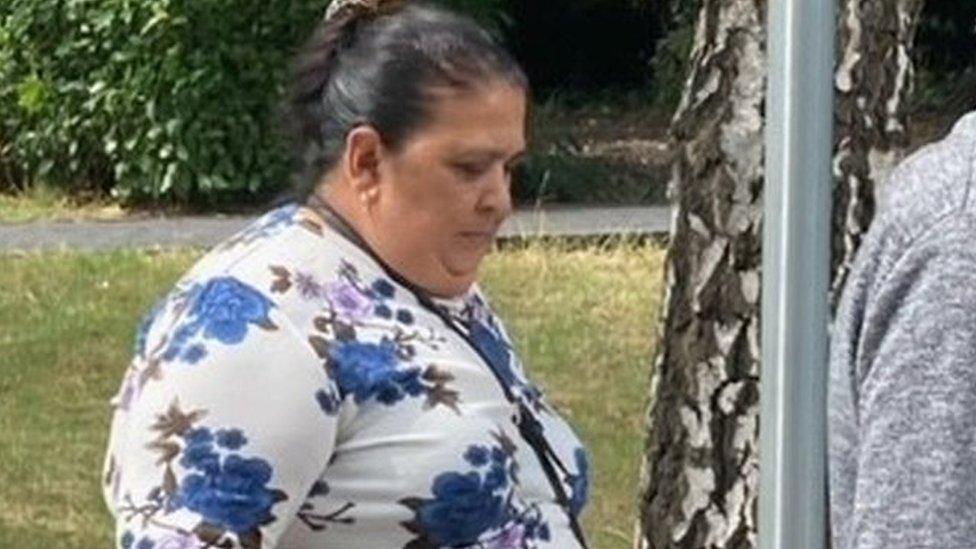
Rolands stayed in a box room in Ruta Stankeviciene (pictured) and Jokubas Stankevicius' home in Capel Close, Newport
She didn't work and her husband cared for her full-time. Both were on benefits.
They arrived from Lithuania with their five children in 2000.
Ruta Stankeviciene terrified Rolands. She would scream at him and order him to clean the house. In court she called him "a child". Rolands couldn't understand why she treated him so badly. Jokubas also shouted and made threats.
It was initially agreed Rolands would pay £50 a week for bed and board. Costs soon rose to £85 then £95 a week.
There were further erroneous charges, including £50 for a national insurance number, £300 for securing a job and £150 "due to Brexit".
A piece of paper detailing his debts was pinned to the fridge alongside letters about Ruta Stankeviciene's medical appointments. However hard he tried he could never pay the debts.
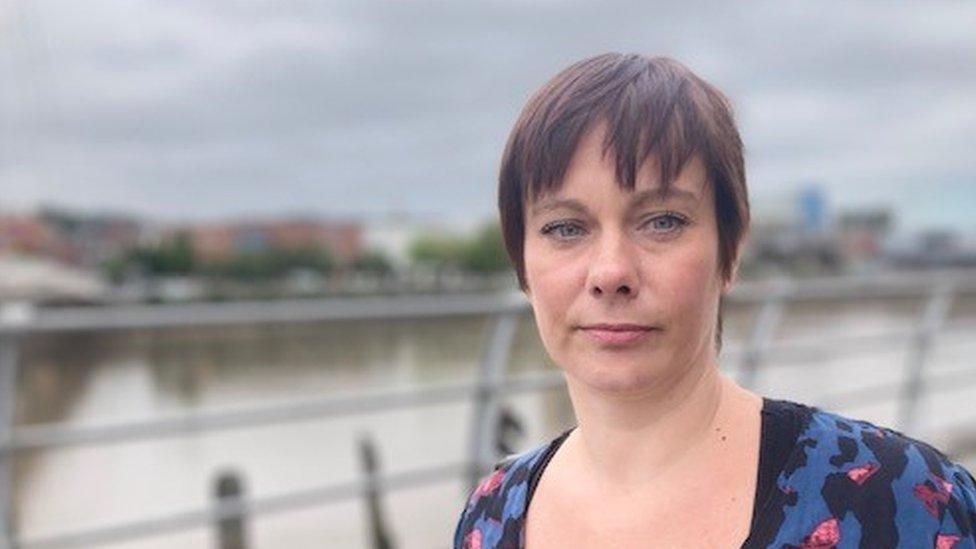
Investigator Laura Thomas spent months persuading Rolands to leave his captors
He told GLAA investigators: "Sometimes I asked for money, they told me: 'When you return all the money you owe, you can buy whatever you want'."
When Rolands arrived in Newport, Freibergs took him to open bank accounts. The address he gave was Freibergs' home, a flat in Morley Close, Ringland, in the east of the city.
His debit card, pin number and statements all went there. When Rolands applied for a national insurance number, he used that address.
They went to Thomas Recruitment, the agency in Freibergs' profile picture.
Draining his earnings
Rolands got a job at a chocolate factory earning £8.25 an hour for a 60-hour week. It didn't last.
Freibergs claimed Rolands had lied about his English skills. Whatever happened, Rolands was unemployed. The money he owed mounted - and the couple were charging interest.
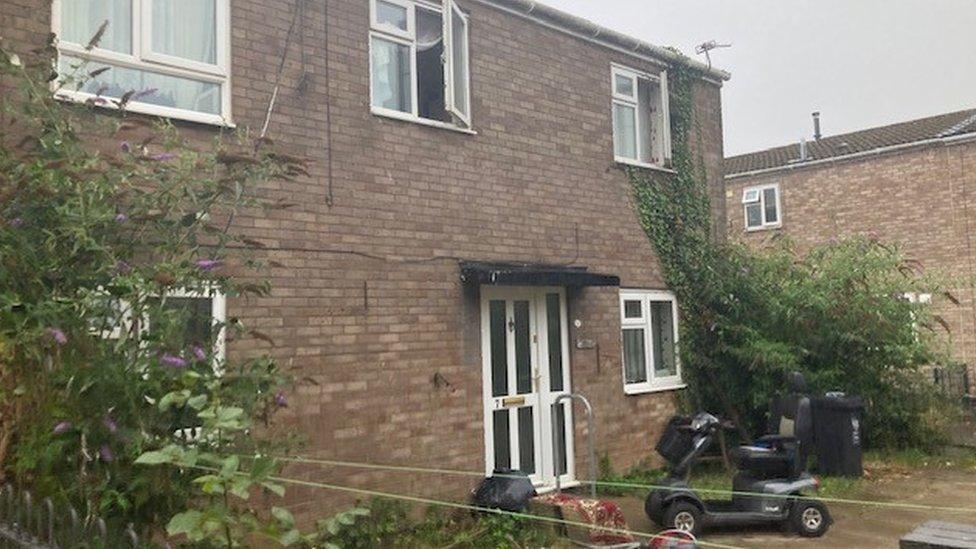
Rolands' life was made a living hell in this house
By the time he started at Avara, Rolands was deeply in debt. He worked early shifts cleaning which started at 05:30. The only money he ever had was £4 for his train fare.
He told Ms Thomas he would hide to avoid having his ticket stamped. That way he could re-use it the next day and keep the money for food.
All the while, Rolands' three tormentors were draining his earnings from his account, withdrawing money from cash machines and over the internet.
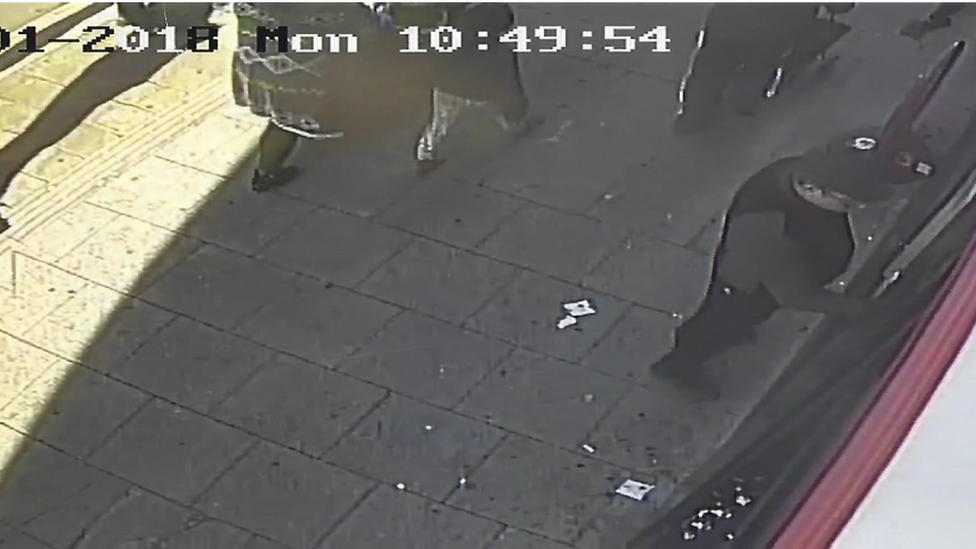
Jokubas Stankevicius and his wife Ruta were seen on CCTV using a cashpoint in Pill, Newport, taking money out of Mr Kazoks' account
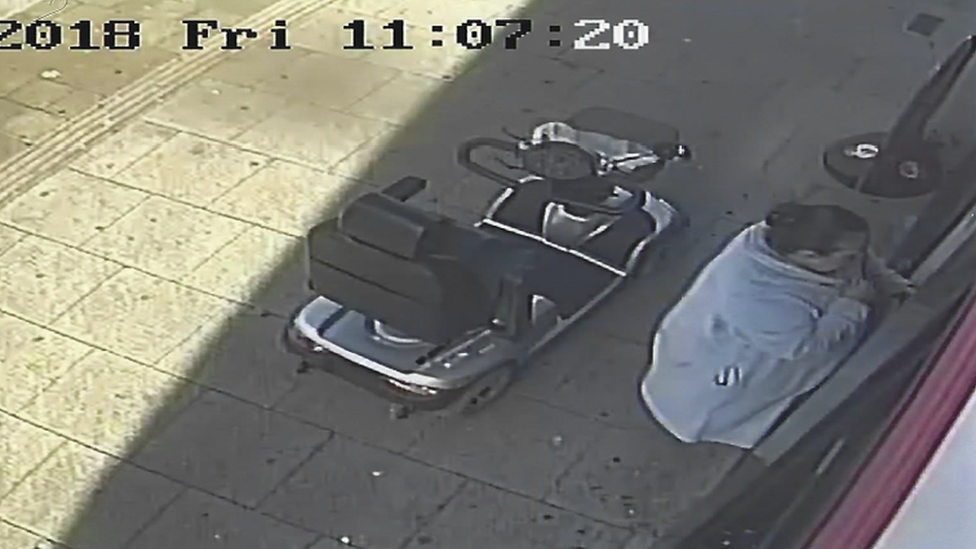
Ruta Stankeviciene using a cashpoint in Newport to take money out of Rolands' account
It's estimated he earned about £10,000 during his 11 months in Newport.
Living less than a minute from Commercial Road made it easy for the couple to withdraw the cash. CCTV from shops and restaurants showed the couple made multiple visits to a machine next to a pharmacy.
Though he was being charged more and more to stay at Capel Close, he got little back.
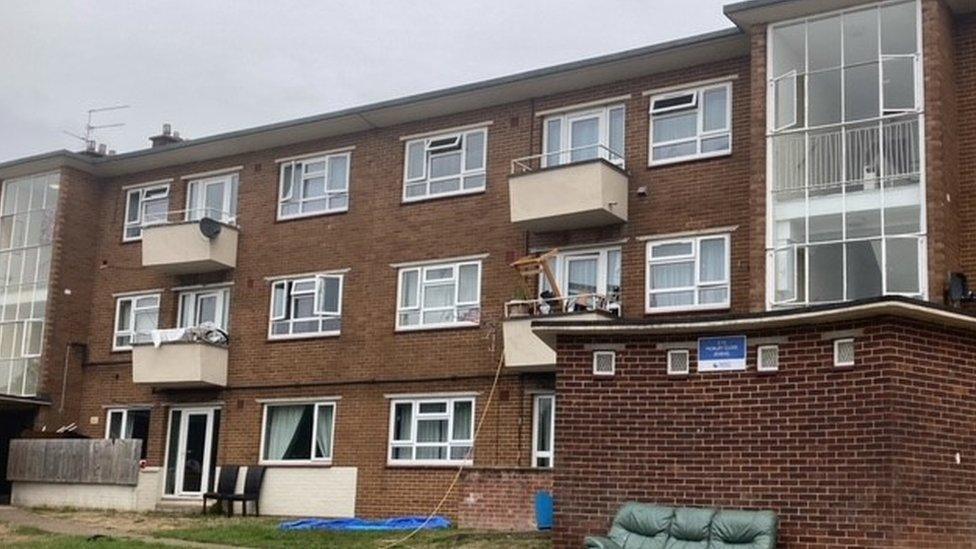
Freibergs would invite Rolands to drink at his flat in Morley Close, Newport
Rolands said Ruta Stankeviciene would call him "untidy and smelly and a pig" in Russian. Jokabus would ridicule him, taunting him about his appearance. But he wasn't allowed to shower or wash his clothes when he wanted.
In court she painted a picture of cosy domesticity and home-cooked meals. While the key to the front door was on a hook, Rolands could not just walk away, as the couple claimed.
He had no money, no passport and no friends. The only other person he knew was Freibergs.
"Sometimes he would buy me a piece of clothing or some sweets because I didn't have any money," Rolands told the court.
He invited Rolands to his home to drink, but Rolands didn't like drinking and couldn't afford to.
Threatening him with violence
It was Freibergs' job to ensure Rolands stayed at Capel Close and kept working.
Doing this included both Freibergs and Jokubas Stankevicius threatening him with violence, and telling him his grandmother and brother in Latvia would be hurt if he left.
Ms Thomas first spoke to Rolands in July 2018. Two months later he agreed to go with the GLAA and leave Capel Close.
The day he left, Freibergs called Rolands 25 times. He sent texts inquiring about his wellbeing.
"The main thing is that you are alive and healthy," he wrote in one.
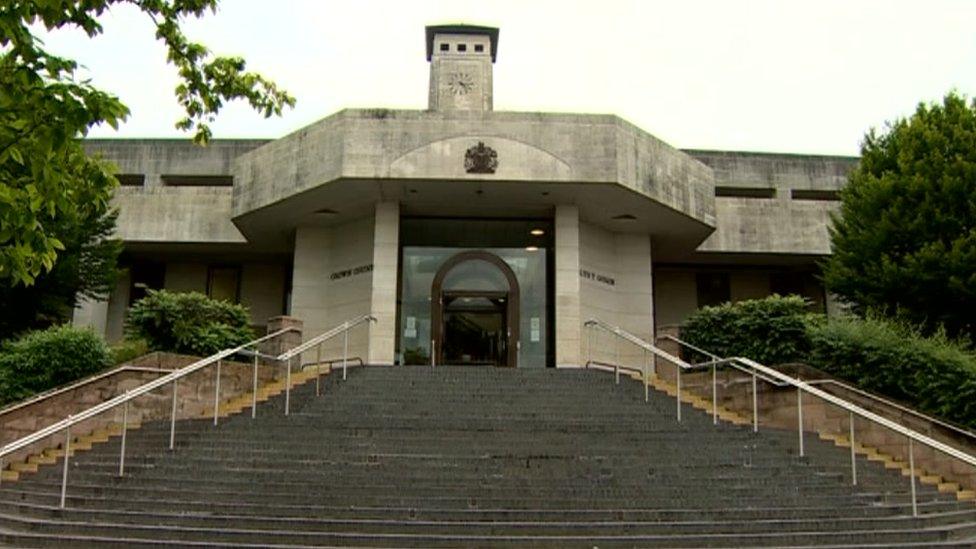
The trial took place at Newport Crown Court
Life is different for Rolands now. Ms Thomas said he was doing well.
"He's really been able to build himself a life: working, earning money and living independently," she said.
Ms Thomas said the most important thing was that Rolands was safe, free of his captors. He has moved away, has a place of his own, friends and a future.
Avara has given him a job at a different plant. Its spokesman Jim Roberts was proud of his colleagues for helping Rolands.
"He can have the job for as long as he wants it," he said.
- Published28 July 2022
